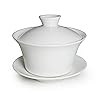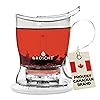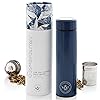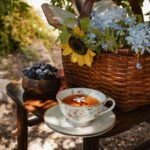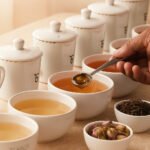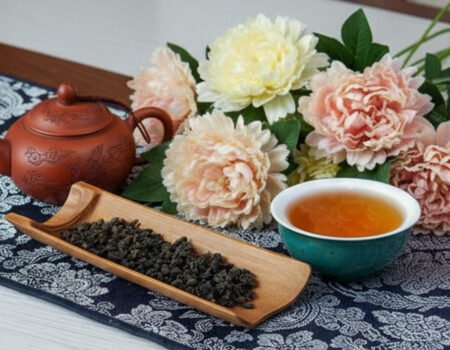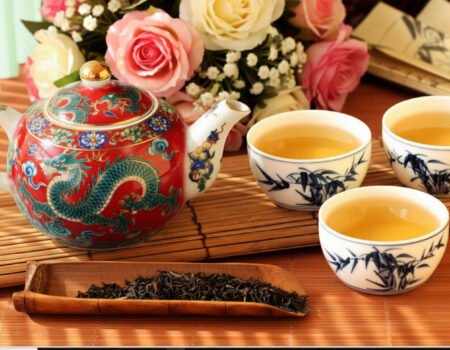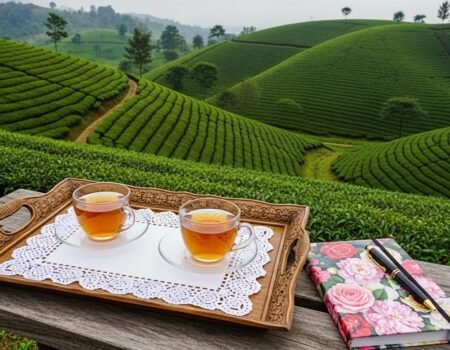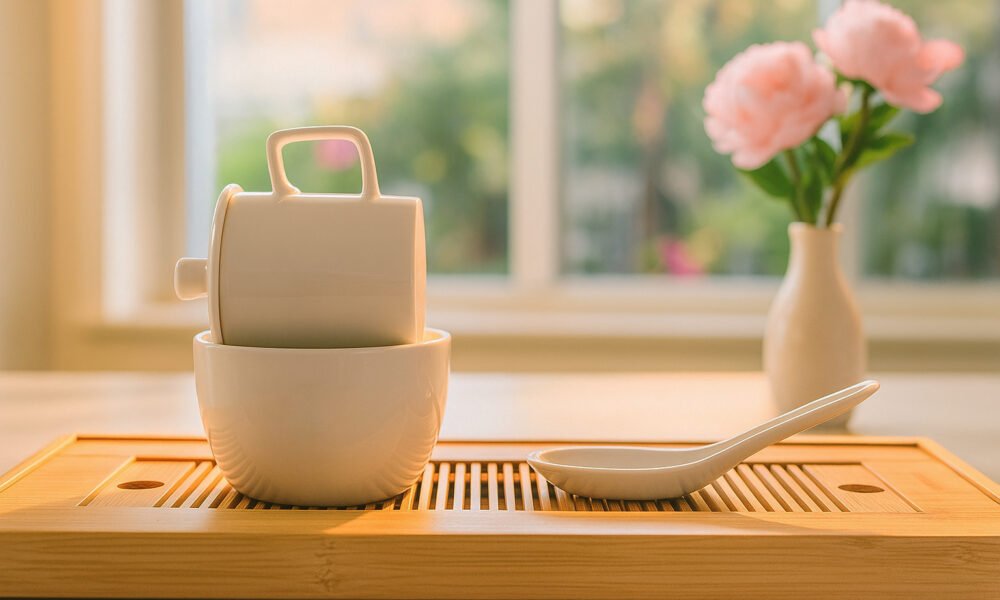
Ultimate Tea Tasting Equipment Set: Elevate Your Tea Experience with Premium Teaware and Accessories
Index
The right tea tasting equipment is essential for every tea lover’s brewing needs. A proper tea tasting set typically includes key tools such as white porcelain cups and pots, spoons for tasting, and kettles with temperature control. These tools help extract and assess the best flavors from tea leaves by enabling precise brewing and proper evaluation of the tea’s color, aroma, and taste.
This guide will show you how to build the ultimate tea tasting kit with premium teaware and accessories that enhance every sip.
Key Takeaways
- Standardized porcelain cupping (tasting) sets help tea lovers judge true color and flavor without distortion.
- Precise tools like electric kettles, digital scales, and timers ensure consistent brewing conditions for fair tea comparisons.
- Specialized vessels match different tea types – gaiwans work best for Chinese teas, while kyusu pots excel with Japanese green teas.
- Porcelain tasting spoons remain flavor-neutral, unlike metal spoons that might affect taste.
- Fairness pitchers distribute tea evenly during group tastings, ensuring each person gets identical strength and flavor in their cup.
Affiliate Disclosure: This post contains affiliate links. If you make a purchase through these links, we may earn a small commission at no extra cost to you. We only recommend products we genuinely believe will enhance your tea tasting experience.
Core Equipment for Professional Tea Tasting (Cupping)
Professional tea tasting demands specific tools that help experts spot subtle differences between teas. A well-equipped tasting set includes special cups, precise scales, and timing devices that reveal each tea’s true character.
Standardized Cupping Sets: Porcelain Infuser Cup and Tasting Bowl
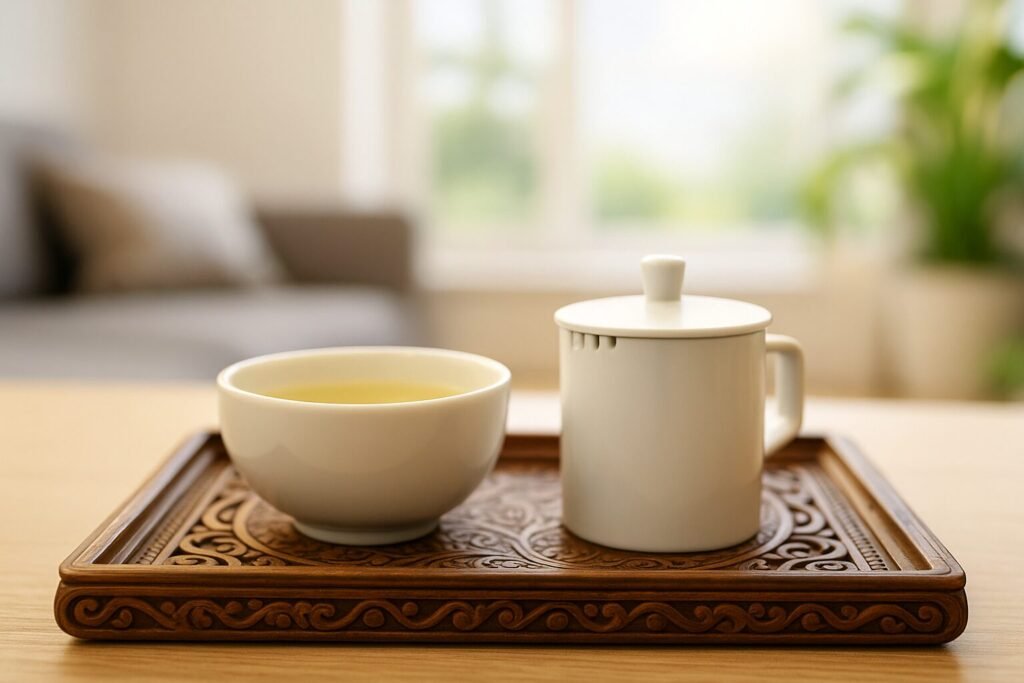
Standardized cupping sets form the backbone of professional tea tasting. Each three-piece set includes a 150 ml porcelain infuser cup with lid and a matching tasting bowl, meeting exact specifications used by tea experts worldwide.
The white porcelain construction serves a critical purpose – it creates a neutral background that allows tasters to judge the true color of tea liquor without distortion. These sets help both professionals and serious enthusiasts evaluate leaf quality and brew characteristics with precision.
The design of these vessels supports the formal cupping process where exactly 2.5 grams of tea leaves steep for a set time before evaluation. Tea professionals pour the infusion into the tasting bowl to check its clarity, color, and aroma before sampling with a tasting spoon.
This method creates a consistent standard that makes comparing different tea samples possible and fair. The cupping set becomes an essential tool for anyone wanting to develop their palate and distinguish subtle flavor nuances across various tea types.
The Role of Precise Measurement: Kettles, Timers, and Scales
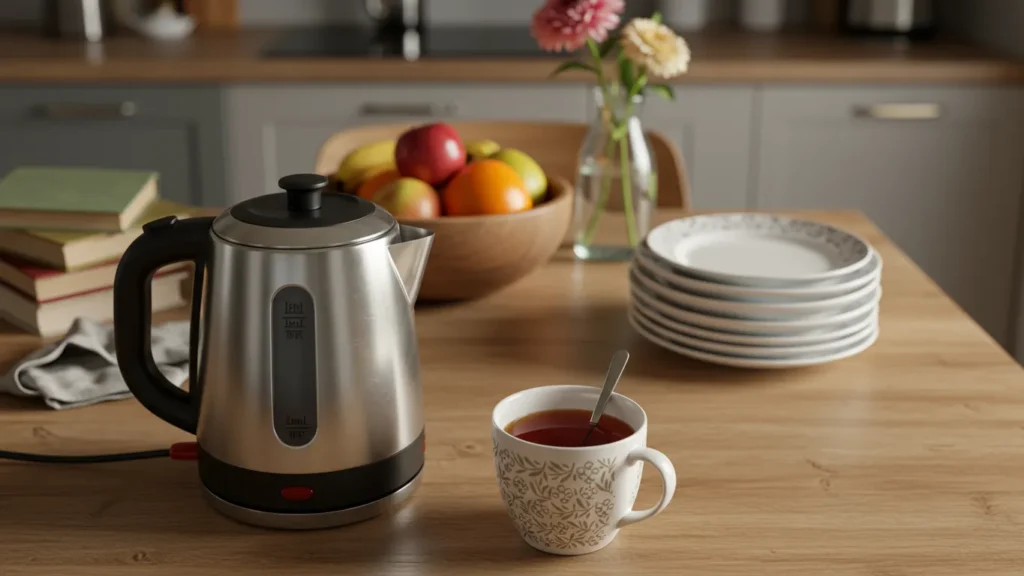
Precise measurement is the foundation of professional tea tasting. Electric kettles with adjustable temperature settings allow you to brew each tea variety at its ideal heat level.
The Corvo EKG and Stagg EKG Electric Kettles offer exact temperature control needed for different tea types. Digital scales help maintain the perfect tea-to-water ratio of 2 to 2.5 grams per 4-5 ounces of water.
This balance ensures your black tea, oolong, or herbal infusions release their full flavor profile without unwanted bitterness or weak taste.
Timing your steep correctly matters just as much as water temperature and tea quantity. A simple digital timer tracks steeping duration, which varies greatly between delicate white teas and black varieties.
Tea professionals use these tools to create consistent brewing conditions for fair comparisons between samples. Many serious tasters keep detailed notebooks to record their observations about astringency, color, and aroma under these controlled conditions.
Specialized tasting spoons complete this equipment set, designed to sample the liquid without disturbing the leaves.
Specialized Tasting Spoons
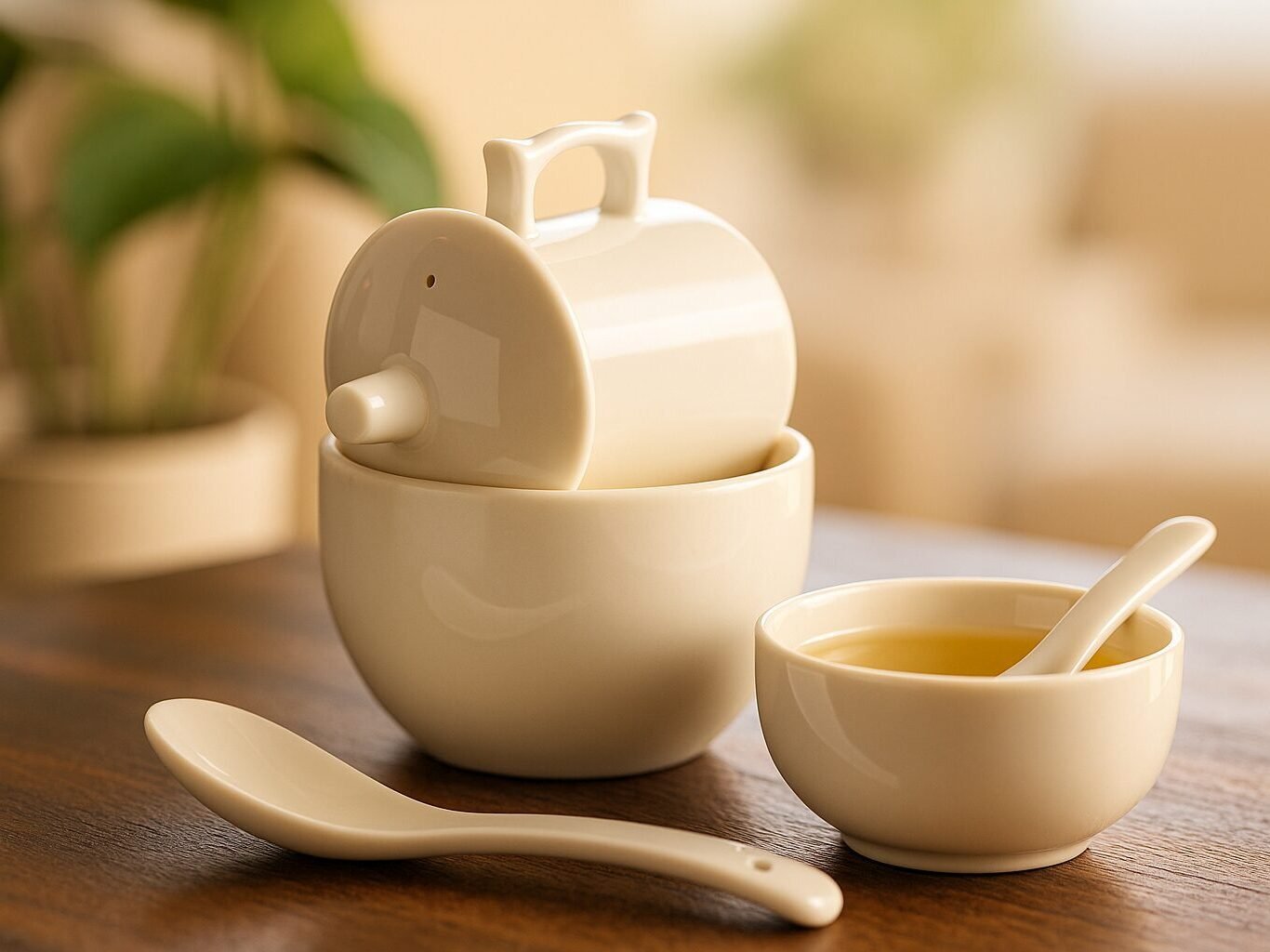
Porcelain tasting spoons serve as essential tools for serious tea evaluators. These clear white utensils measure 5.75 inches long, offering the perfect size for sampling brewed tea without altering its flavor profile.
Unlike metal spoons that might affect taste, porcelain remains neutral and allows tea tasters to focus on the true characteristics of each cup. These specialized tools are accessible for both professional tasters and home enthusiasts who want to elevate their tea experience.
Tea cupping demands proper equipment, and these spoons complement standardized tasting sets perfectly. The limited stock available suggests their popularity among dedicated tea drinkers who value quality standards in their tasting process.
Next, we’ll explore how different brewing vessels can further enhance your ability to evaluate various tea types.
Documenting Observations: Notebooks
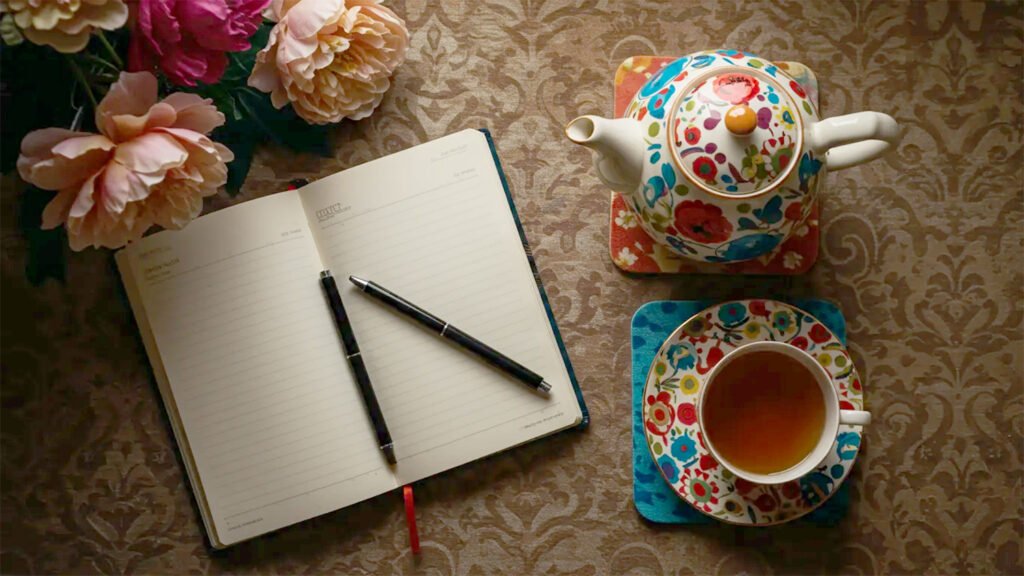
While tasting spoons help you sample tea, keeping track of what you taste requires proper documentation. A dedicated tea tasting notebook serves as your personal flavor archive. The “Tea Tasting Journal” offers over 100 pages to record your sensory journey through different teas.
Your notebook becomes a vital part of the cupping set, allowing you to track flavor notes, steep times, and brewing temperatures. Serious tea tasters use these records to compare teas across sessions and spot subtle differences between varieties.
Many tea professionals mark size, color, and qualities of infused leaves in their notes. This practice helps differentiate high-quality teas from average ones and builds your expertise with each cup you sample.
Versatile Brewing Vessels for Broader Tea Evaluation
Versatile brewing vessels expand your tea tasting skills beyond basic equipment, letting you match each vessel to specific tea types for the most accurate flavor assessment – discover how gaiwans, glass teapots, Japanese kyusu, and fairness pitchers can transform your tea experience.
Gaiwans: For Chinese Teas and Versatile Tasting
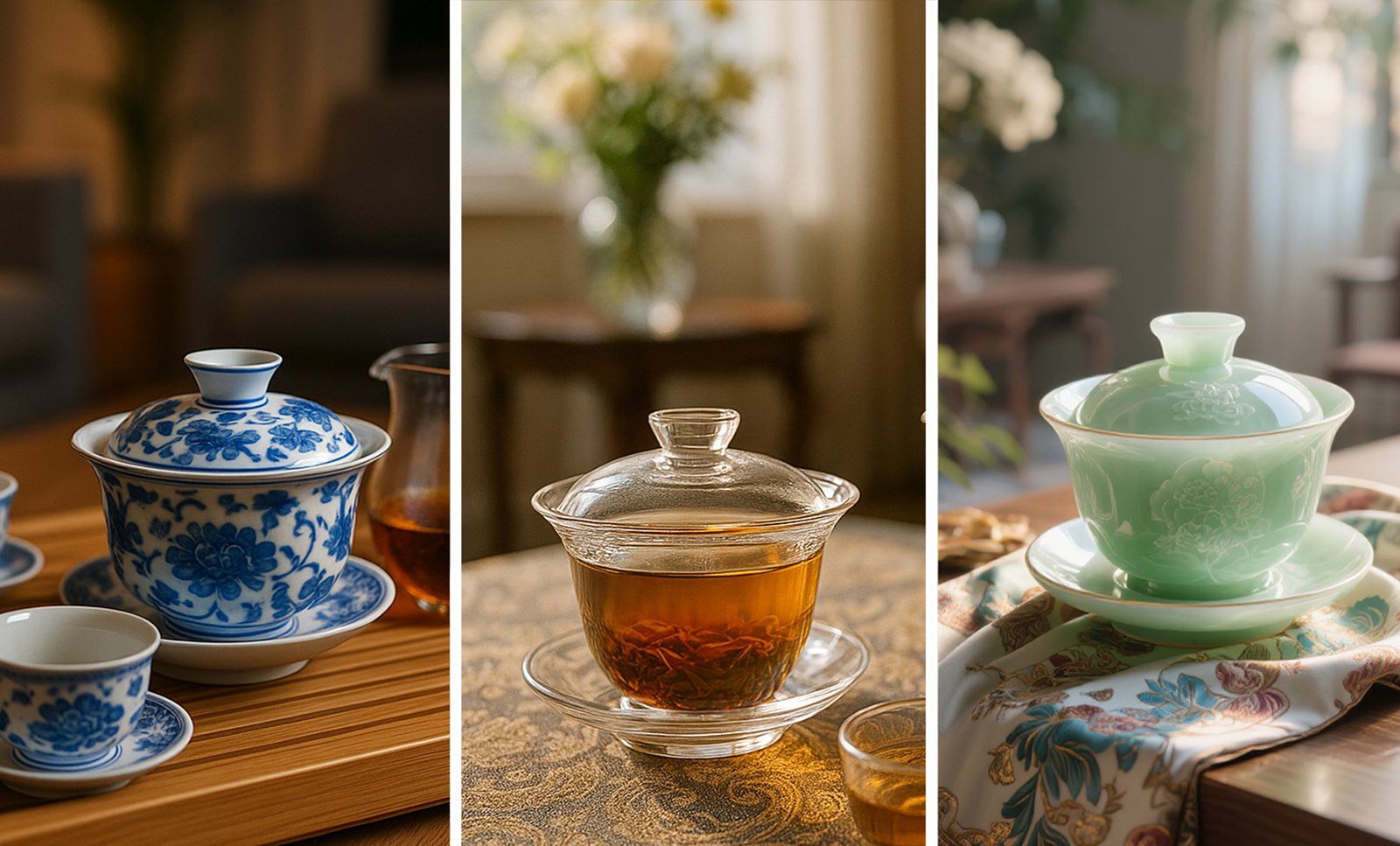
Gaiwans serve as essential tools for any serious tea tasting setup. These traditional Chinese vessels, meaning “bowl and lid,” combine simplicity with remarkable functionality for evaluating teas.
Glazed ceramic and porcelain gaiwans offer neutral brewing environments that won’t affect tea flavor, making them perfect for tasting sessions. Clay versions made from Yixing or Jian Shui materials add subtle texture to certain tea types.
Tea experts prize gaiwans for gong fu preparation, where short steeps reveal the full profile of premium loose leaf teas.
You can find quality gaiwans at various price points depending on materials and craftsmanship. The wide opening allows easy viewing of tea leaves as they unfurl, helping tasters track color changes and leaf expansion.
This design feature makes gaiwans particularly useful for cupping Chinese teas like oolongs and white teas. Porcelain teapots offer another excellent option for those seeking neutral brewing vessels for accurate tea assessment.
Porcelain and Glass Teapots: Neutrality for Accurate Assessment
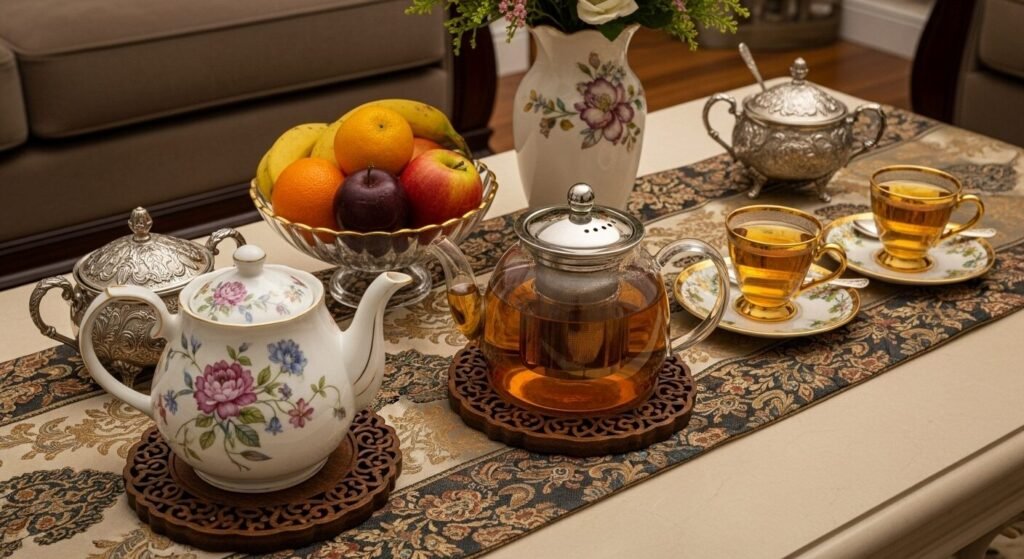
Porcelain and glass teapots stand as essential tools for serious tea tasting. These vessels, crafted in places like Dehua County in Fujian Province, offer a neutral background that doesn’t alter tea flavors.
The white porcelain surface helps tea tasters judge color accurately while the material doesn’t retain odors from previous brews. Many professional tea cupping sets include these teapots with stainless steel strainers that allow full leaf expansion without affecting taste.
Glass teapots add another dimension to the tasting process by letting you watch the tea leaves dance and unfurl. This visual aspect proves helpful when comparing different tea types side by side.
The clear walls show bloom patterns and steep colors that hint at quality before you take your first sip. Japanese kyusu pots offer another specialized option, particularly suited for evaluating delicate green teas with their unique brewing characteristics.
Japanese Kyusu: Specialized for Green Tea Tasting
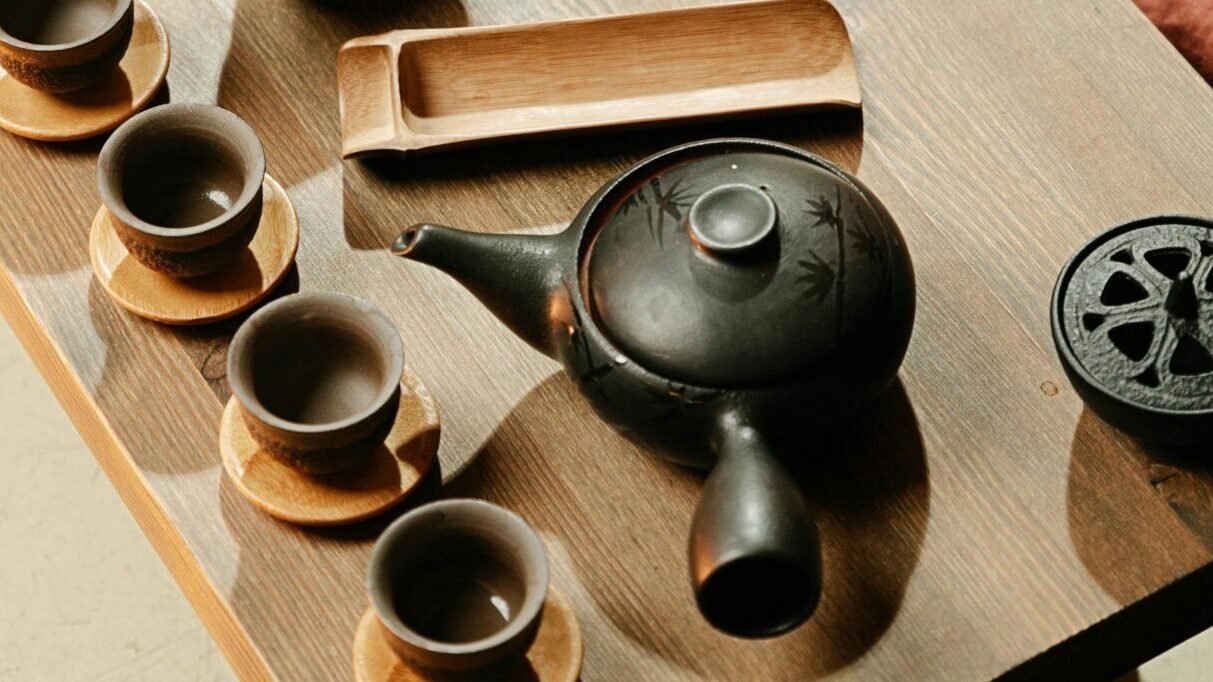
Moving from neutral brewing vessels to specialized options, the Japanese Kyusu stands out as a perfect tool for green tea tastings. This traditional teapot features a wide base that gives tea leaves room to unfurl completely, while its long spout and built-in filter help capture the full flavor profile of Japanese teas.
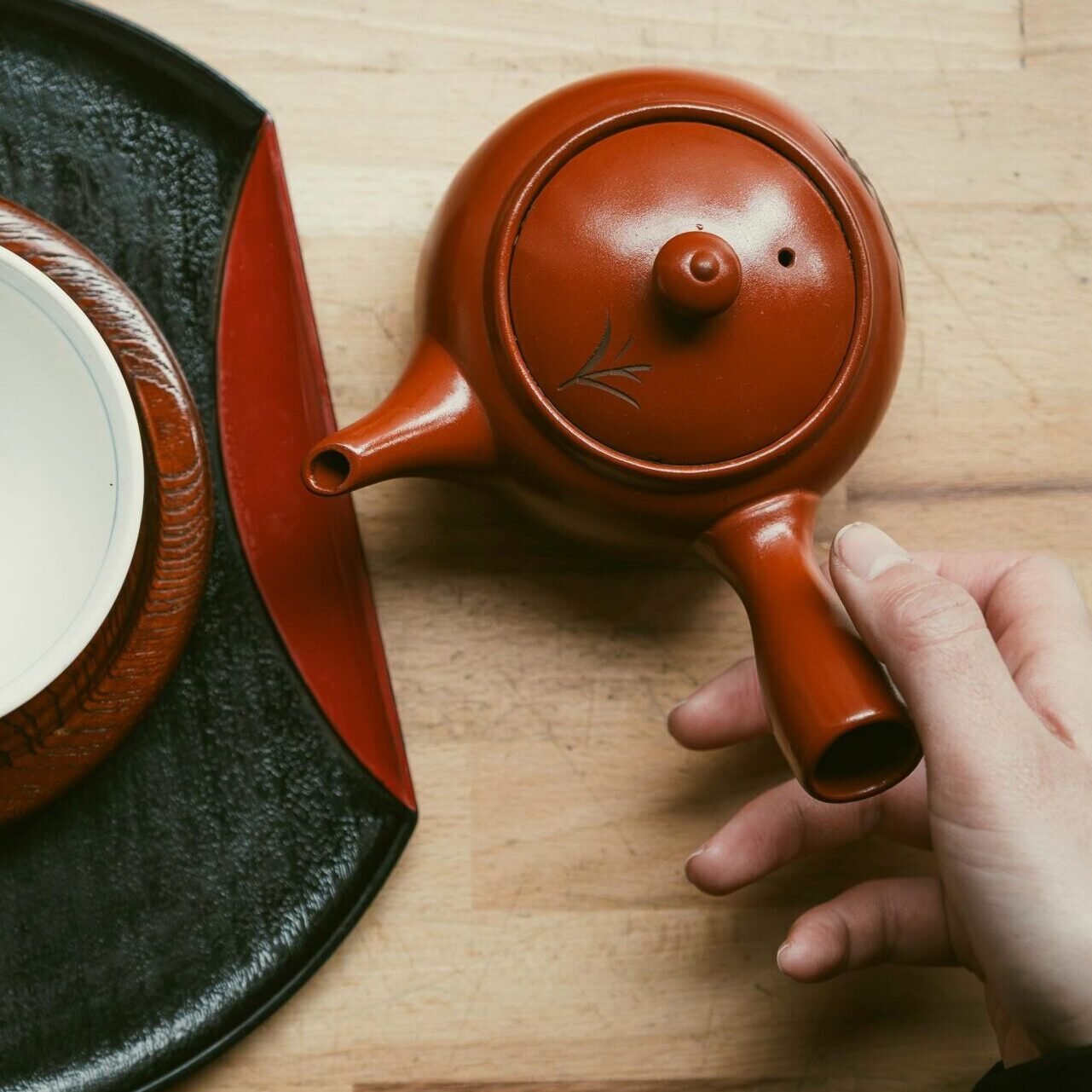
The hollow side handle stays cool during brewing, making it comfortable to pour multiple cups during tasting sessions.
Kyusu teapots come in two main varieties to suit different budgets and tasting needs. Red Kyusu offers an affordable entry point for casual tea tastings, while black Kyusu represents the premium choice for serious tasters.
Both excel at brewing Sencha and Gyokuro, bringing out the grassy notes and umami flavors that make Japanese green teas so distinct. The pot’s design creates the ideal brewing environment to extract the caffeine and flavor compounds that define a quality cup of green tea.
Fairness Pitchers (Gong Dao Bei): Ensuring Consistency in Group Tastings
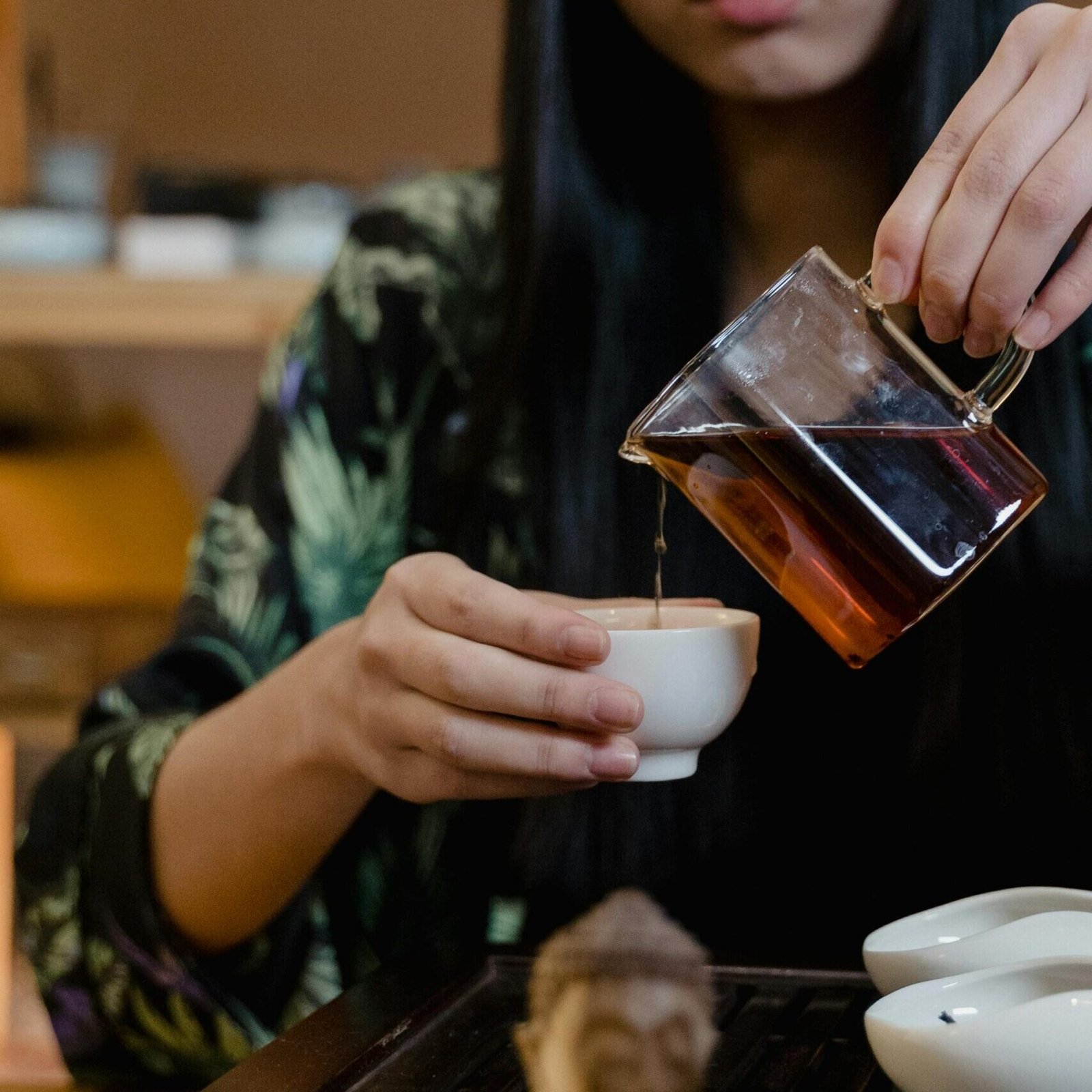
While Japanese kyusu teapots excel with green teas, fairness pitchers serve a different but crucial role in group tastings. The Gong Dao Bei (fairness pitcher) acts as a bridge between brewing vessel and teacups, ensuring each person receives tea of identical strength and flavor.
Made of glass for easy color observation, these pitchers allow hosts to pour brewed tea from the main vessel and distribute it evenly to guests. Tea experts value this tool because it symbolizes respect in serving—traditionally filling each guest’s cup to about 70% capacity.
Group tea tastings demand consistency for valid comparisons. A fairness pitcher prevents the situation where the first cup pours weaker than the last from the same pot. Professional tea tasters rely on these vessels to maintain quality standards across multiple samples.
The clear glass construction helps tasters evaluate the tea’s color and clarity before serving, making it essential equipment for serious tastings and traditional ceremonies alike.
Ancillary Tools Supporting the Tasting Process
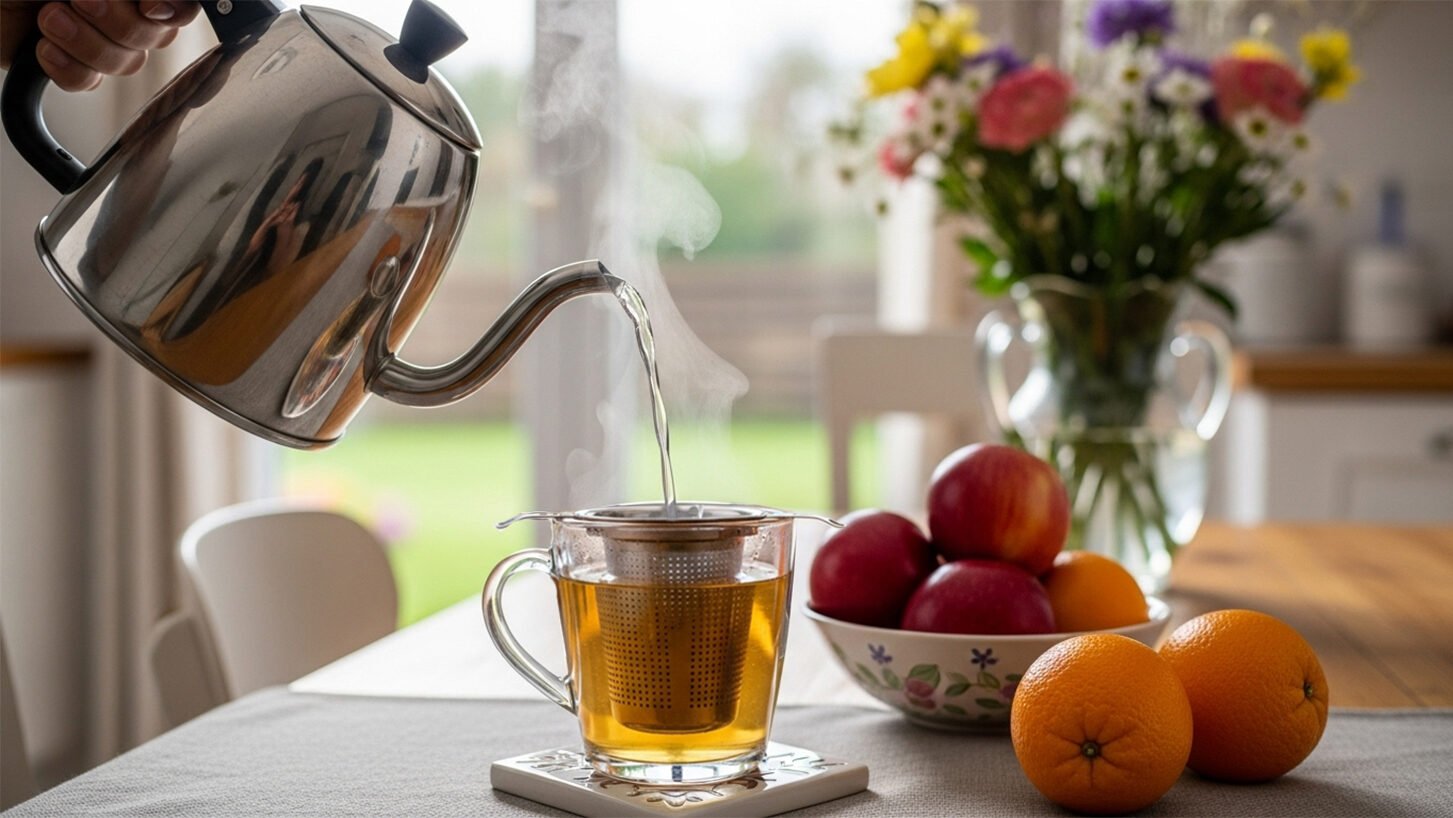
The right tools make your tea tasting complete beyond the main brewing vessels. A few key extras will lift your sessions from basic to expert level, helping you catch every note and nuance in your cup.
Tea Strainers and Infusers in Preparation
Tea strainers and infusers serve as essential tools for any serious tea tasting setup. These practical devices help separate tea leaves from liquid, allowing for clean, consistent evaluation of different tea varieties.
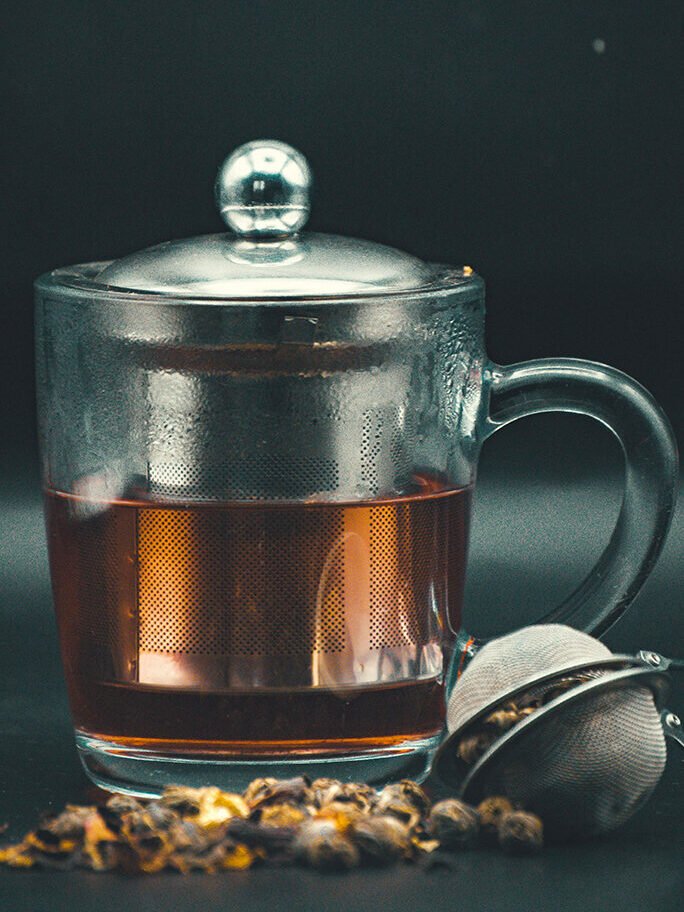
Infuser Styles for Your Needs
A Look at Materials
- Stainless Steel: Mesh infusers made from high-quality 304 stainless steel offer excellent durability and versatility for daily preparation.
- Glass: A key benefit of glass infusers is that you can visually assess the brewing process and watch the color develop.
- Silicone: You may find infusers with silicone-tips, which help protect delicate porcelain cups from scratches during brewing.
- Bamboo: For a traditional ceremony, bamboo tea tools add an authentic and functional touch.
Features for Convenience and Quality
- Multi-Purpose: You can find adaptable infusers that fit nicely in teapots, mugs, or larger containers perfect for group tastings.
- Dishwasher-Safe: Your cleanup is simplified with dishwasher-safe options, ensuring proper sanitization between tasting different teas.
- Travel-Friendly: For a great cup on the go, a travel infuser enables you to have a consistent tasting experience away from your home.
Tea Tools (Cha Dao) for Gongfu Style Tasting
Gongfu tea ceremonies require specific tools to fully appreciate the nuances of fine teas. These specialized implements, crafted with care by artisans like Xiang Fu, help tea enthusiasts perform each step of the brewing process with precision and grace.
Beyond the teapot and cup, a range of specialized tools can elevate your tea sessions from simple brewing to a refined practice. These accessories improve consistency, cleanliness, and the overall sensory experience.
Tools for Handling the Leaves
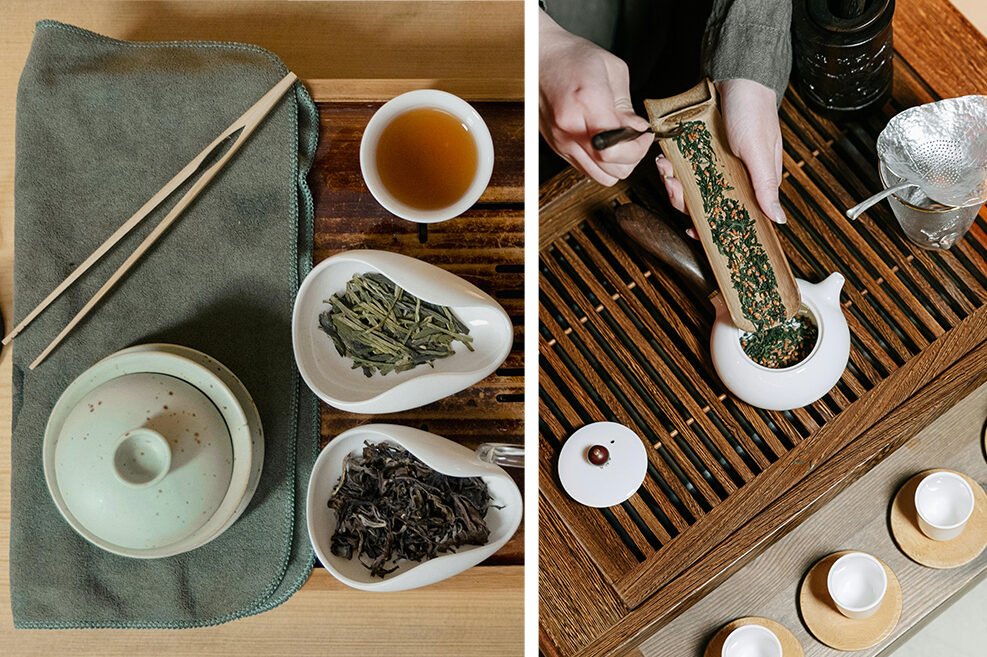
- Tea Picks: You’ll find these essential for gently breaking apart compressed teas like pu-erh without damaging the delicate leaves.
- Scoops and Funnels: Bamboo tea scoops are excellent for measuring loose leaf tea with accuracy. When you transfer those leaves into a small-mouthed teapot, a tea funnel is perfect for preventing spills.
- Tweezers: These allow you to delicately handle tea leaves during a tasting and help remove any stray bits from your brewing vessel.
- Scales: For truly consistent results, you can use a scale to measure your tea leaves with gram-level accuracy.
Accessories for Brewing and Serving
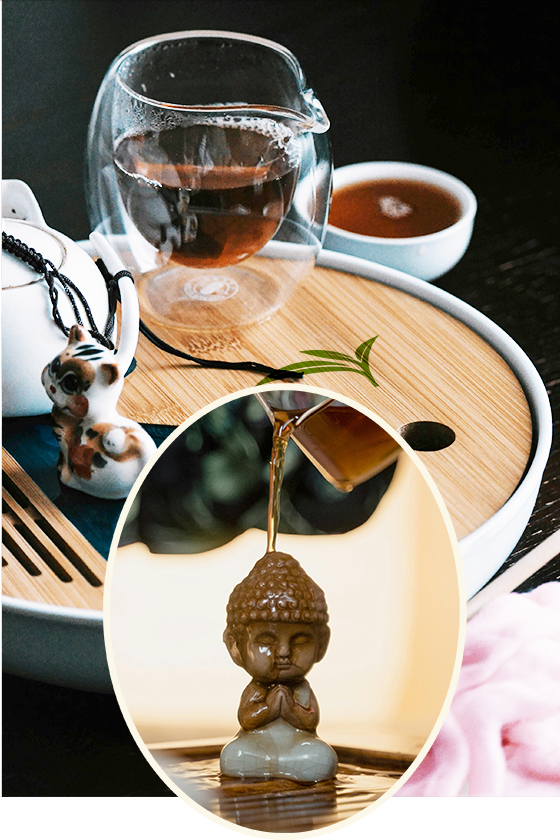
- Water Filters: Your premium teas will have a cleaner flavor profile when you use a water filter to remove impurities that can affect the taste.
- Timers: A simple timer is crucial for tracking steeping duration. This helps you extract the optimal flavor from each infusion.
- Fairness Pitchers: A gong dao bei, or fairness pitcher, ensures that every cup you pour receives tea of identical strength and flavor.
- Trays and Boats: Tea trays and tea boats make the experience more enjoyable by catching spills and collecting excess water, which protects your table surface.
Enhancing the Tasting Experience
- Aroma Cups: You can enhance the sensory experience by using aroma cups, which are designed to capture and concentrate the rich fragrance of the brewed tea.
- Tea Cloths: A tea cloth is invaluable for cleaning spills and wiping down your equipment between infusions.
- Holders and Organizers: A tea holder, like the 11 cm x 7.5 cm one found in some sets, keeps all your tools organized and within easy reach.
- Tea Pets: These small clay figures add a playful and traditional cultural element to your tea tasting ritual.
Conclusion
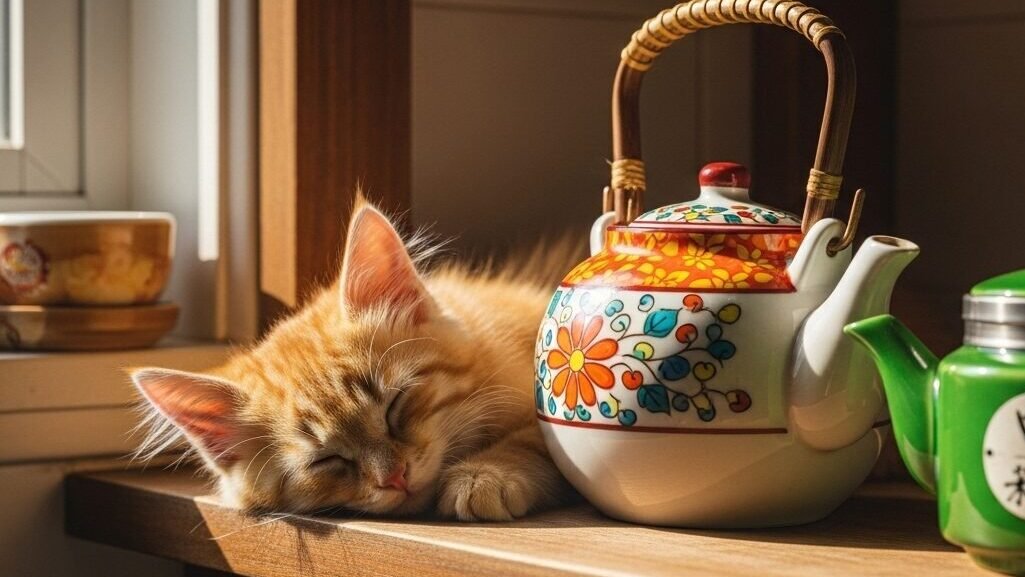
Your tea journey deserves the right tools to unlock full flavors and aromas. Premium teaware transforms simple leaves into sensory adventures worth savoring. From precise cupping sets to specialized vessels like gaiwans and kyusu pots, each piece serves a distinct purpose in your tasting ritual.
Quality accessories make all the difference between an ordinary cup and an extraordinary experience. Invest in proper equipment today and watch your appreciation for tea deepen with each perfectly brewed pot.
FAQs
1. What comes in an Ultimate Tea Tasting Equipment Set?
A complete tea tasting set typically includes a teapot, tea infuser, tasting cups, and measuring teaspoons. Most premium sets also feature accessories for both hot and iced tea preparation, plus a tumbler for travel use. Quality sets may include samplers from brands like Harney to help you explore different flavors.
2. How do I use a tea infuser properly?
Place your chosen tea leaves in the infuser and submerge it in hot water. Let it steep according to the specific tea type’s requirements. Remove the infuser once your tea reaches the desired strength to prevent bitter flavors.
3. Can I use the same equipment for herbal tea and regular tea?
Yes, your tea accessories work well for both traditional and herbal teas. Clean your equipment thoroughly between uses to prevent flavor mixing, especially when switching between strongly flavored varieties.
4. What makes a good tasting cup different from regular cups?
Good tasting cups are designed with specific size and color features that help experienced tea tasters evaluate aroma and color properly. The shape enhances the drinking experience by concentrating the tea’s fragrance and allowing proper heat retention.
5. Are premium tea sets worth the investment?
Premium tea sets are worth buying if you value the full tea experience. Quality teaware brings out better flavor notes in your beverage and lasts longer than cheap alternatives. Many tea enthusiasts find that proper equipment transforms ordinary tea into a special ritual.
6. How do I know if my tea meets organic standards?
Look for certifications like USDA Organic or Rainforest Alliance on the packaging. These labels guarantee your tea was grown without pesticides or synthetic fertilizers. Fair Trade certification further ensures ethical farming practices that support biodiversity and protect against climate change.

